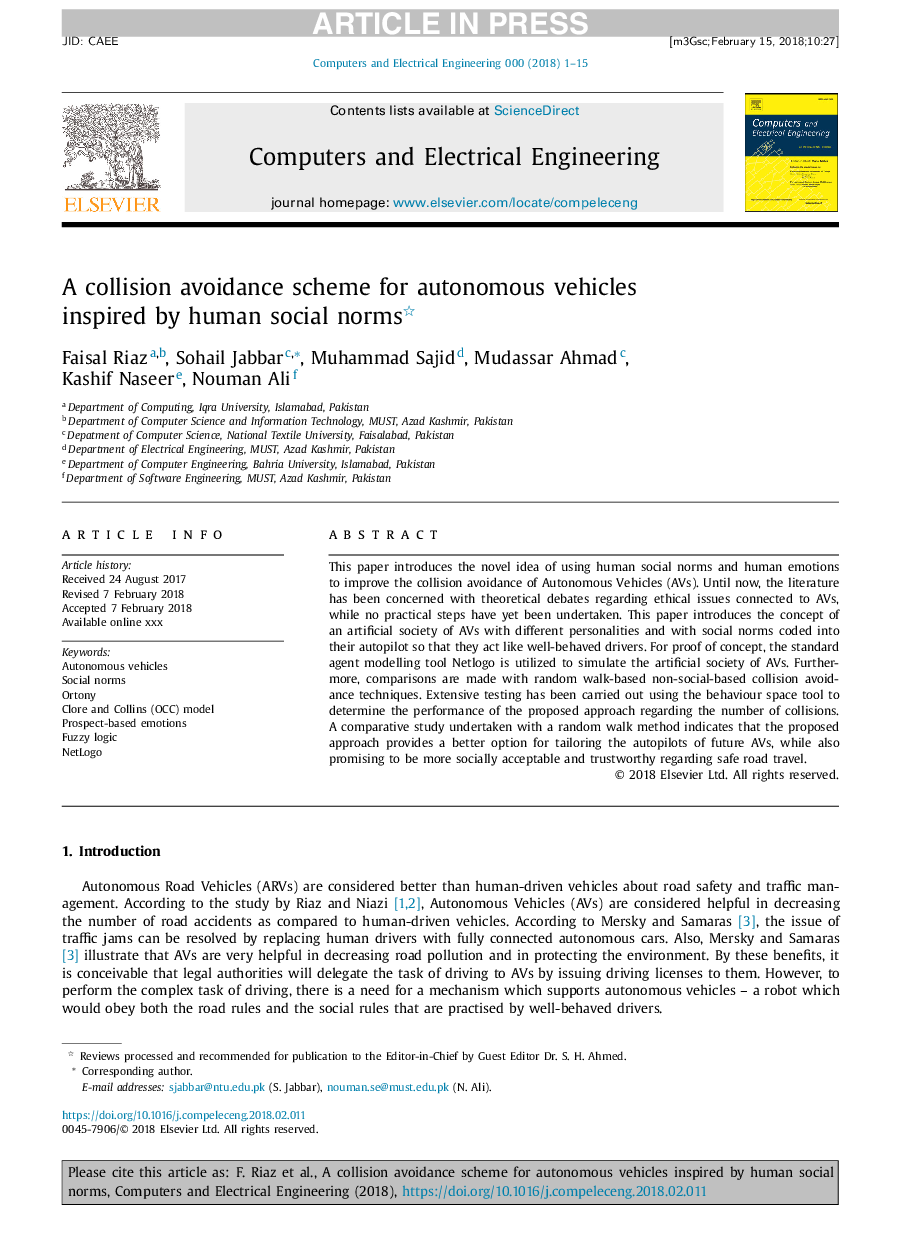| Article ID | Journal | Published Year | Pages | File Type |
|---|---|---|---|---|
| 6883323 | Computers & Electrical Engineering | 2018 | 15 Pages |
Abstract
This paper introduces the novel idea of using human social norms and human emotions to improve the collision avoidance of Autonomous Vehicles (AVs). Until now, the literature has been concerned with theoretical debates regarding ethical issues connected to AVs, while no practical steps have yet been undertaken. This paper introduces the concept of an artificial society of AVs with different personalities and with social norms coded into their autopilot so that they act like well-behaved drivers. For proof of concept, the standard agent modelling tool Netlogo is utilized to simulate the artificial society of AVs. Furthermore, comparisons are made with random walk-based non-social-based collision avoidance techniques. Extensive testing has been carried out using the behaviour space tool to determine the performance of the proposed approach regarding the number of collisions. A comparative study undertaken with a random walk method indicates that the proposed approach provides a better option for tailoring the autopilots of future AVs, while also promising to be more socially acceptable and trustworthy regarding safe road travel.
Related Topics
Physical Sciences and Engineering
Computer Science
Computer Networks and Communications
Authors
Faisal Riaz, Sohail Jabbar, Muhammad Sajid, Mudassar Ahmad, Kashif Naseer, Nouman Ali,
